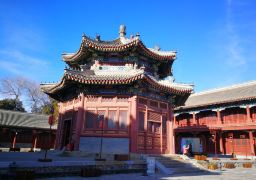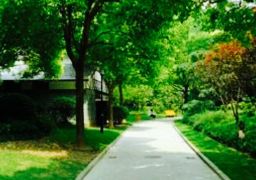The Summit of the Three Gorges scenic area is located on the top of Chijia Mountain, above the Kui Gate. The scenic area starts from the northern workshop slot and overlooks Baiyan Mountain to the south, faces the Bai Di Poetic City to the west, and is adjacent to the Wu Mountain Airport to the east, stretching over 10 kilometers. Named after Du Fu’s poem ‘Kuizhou Song Shi Jueju’ which says ‘Chijia and Baiyan both pierce the sky, the lanes and alleys are intertwined and connected to the mountaintop’, the scenic area successfully opened on May 1, 2020, and was rated as a National AAAA-level tourist attraction in October 2020.
The Summit of the Three Gorges is one of the birthplaces of ancient Kui music over 4,000 years ago, where a Chinese musician and the originator of elegant music, ‘Kui’, was born. The scenic area deeply integrates the green mountains and clear waters with the search for roots and ancestors, as well as elegant music and dance, vividly depicting the landscape’s grandeur with the phrase ‘Green mountains do not need ink for a thousand autumns, clear waters do not need strings for ten thousand ages’. It meticulously creates sacred music sites such as the Kui Drum Altar, the Four-View Music Stage, the Ancestor of Music Statue, the Kui Character Gate, the Bamboo Law Elegance Fence, and the Dragon Welcoming Platform. The highest point of the scenic area is 1388 meters above sea level, which is the highest point in the physical form, the most beautiful in the landscape form, the utmost in the cultural aspect, the supreme in the spiritual aspect, and the ultimate in green development of the Three Gorges of the Yangtze River. Standing here, one can see clouds and mist swirling around, and colorful rosy clouds diffusing; looking into the distance, there are continuous mountains and overlapping peaks; looking down from the sky, the jade belt Yangtze River winds and flutters. Stepping on the glass plank road, one can feel the unique artistic conception of ‘When I reach the top of the mountain, I can see all the mountains are small’, and the interwoven landscape of ‘suspension, danger, surprise, and wonder’ is all in sight. The full text is open all year round from 08:30 to 19:00. Preferential policies for soldiers: active-duty soldiers, martyrs’ families, revolutionary disabled soldiers, and retired military cadres, with valid documents, are free. Disabled people: with disability certificates, are free. Children: under 6 years old (inclusive) or under 1.2 meters (inclusive) in height, are free; minors from 7 to 18 years old (inclusive), enjoy discounts. Elderly people: over 65 years old (inclusive) with their own ID card or ‘Chongqing Municipal People’s Government Respect for the Elderly Preferential Certificate’, are free; those aged 60 to 65 years old (not inclusive), with their own ID card or ‘Chongqing Municipal People’s Government Respect for the Elderly Preferential Certificate’, enjoy half price. Firefighters: on-duty, retired, disabled firefighters, and firefighters from fire rescue academies (with valid documents), are free. Students: full-time undergraduate and below students, enjoy half price. Shandong and Emei Mountain visitors: Shandong and Emei Mountain visitors with their own ID card, valid until December 31, 2024, are free. Additional note: The transportation ticket in the park needs to be paid by the visitors themselves. Must-see tips: Park phone directory: Rescue phone: 023-81768002 Complaint phone: 023-81768003










